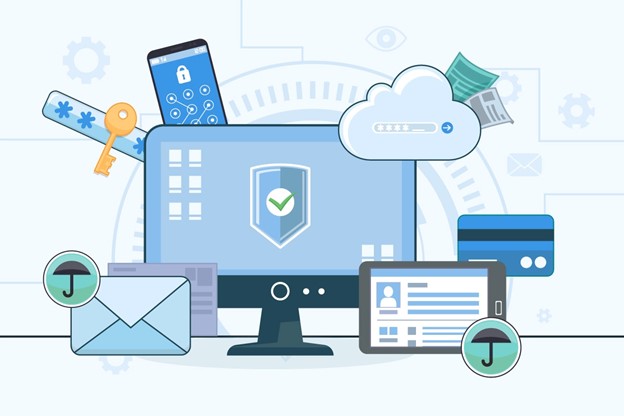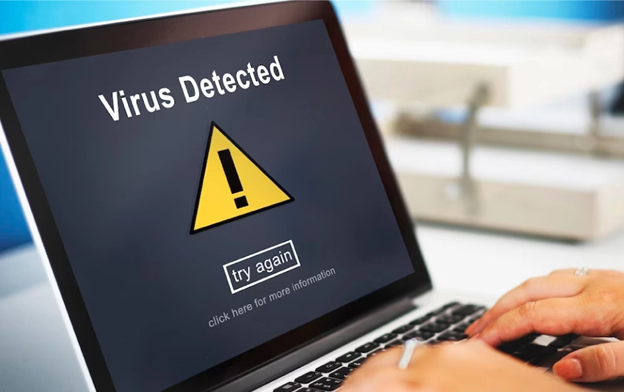
Can you imagine the horror of someone secretly spying on your personal files or bombarding your contacts with spam links through your own computer? It's a scary thought, indeed.
And despite the dawn of a new year, the menace of computer spyware and malware still looms large over us. With their ability to wreak havoc on our systems, steal confidential data, and compromise our privacy, the stakes have never been higher.
That's why it's absolutely essential to take proactive measures to protect our computers from these harmful programs. In this article, we'll explore some practical and effective ways to safeguard your computer against spyware and other types of malware.
Whether you're a casual internet user or a business owner, these tips will arm you with the knowledge to keep your computer secure and free from malicious attacks. So let's dive in and learn how to protect your computer from the dangers of spyware and other malware.
What are Spyware and Malware?
Malware can be the name for any kind of malicious software that harms your computer’s security and performance. They are designed to exploit any computer system, device, or network without the user’s consent. Adware, viruses, trojan horses, ransomware, and spyware are some types of malware that can infect your computer.
These types of malicious programs are created to perform various actions, such as stealing personal information, hijacking computers, encrypting files, and disrupting normal system operations.
Malware can spread through emails, social media, websites, file-sharing networks, and other sources and can cause significant damage to individuals, businesses, and organizations. Protecting against malware is essential to maintaining a secure and functional computer system.
Further, as discussed earlier, spyware is malicious software that is built to spy on your computer. With its name derived from the term "spy", it's no surprise that spyware's true intention is to gather sensitive data from your computer and transmit it to third parties without your consent.
This fraud activity can make you the victim of data breaches, identity theft, misuse of personal data, loss of money, and so on.
There are various kinds of spyware with their own nature. Like other malware, some spyware is installed by simply clicking the phishing links in emails or any websites, whereas some applications can install on a computer only where there is physical access.
After knowing the signs that your computer device shows when it is infected with spyware and malware, you can protect yourself from big losses. So, let's discuss some of the signs.
Signs that indicate a spyware or malware infection on your computer

The symptoms of malware are numerous. You will see the sign depending on what type of malware you have on your computer.
You may see a combination of the following symptoms or a single one when your computer gets malware infection.
1. Computer Slow Down
The main side effect of malware is that it reduces the speed of your computer’s operating system (OS). When you browse the Internet or use your local applications, you experience excessive resource usage.
2. Disruptions to Your Browsing Experience
When your device gets infected with spy applications and malware, it can disturb your internet browsing experience. Spywares manipulate search engine results and deliver unwanted websites to your browser. As a result, it leads to harmful and fraudulent websites.
3. Sudden Popups
Another symptom that an infected computer can show is a sudden annoying pop-up of advertisements. This kind of unexpected pop-up ad is associated with adware (a form of malware).
You may encounter something like, “Congratulations, you’ve won an iPhone 14! Click the link to grab it in the pop-up many times. Never share your credit card details, personal name, or location to claim that offer. It is a frustrating issue that can appear even when your computer device is not connected to the internet. You can use a popup blocker to get rid of this problem.
4. Homepage Changes
The home page that was previously set on your browser gets changed without even a warning. In addition to that, new extensions, toolbars, or plugins may be installed when malware infection on your computer occurs.
5. Lose access to files
Yet another symptom of a malware infection is losing access to files, folders, and sometimes to your whole computer. It is mainly associated with ransomware infection.
Hackers encrypt the data, and to decrypt the file, they demand a ransom payment. The hackers leave a ransom note on your computer device or make a ransom note on your desktop wallpaper itself.
6. Your system crashes
There can be either a freeze or a BSOD (Blue Screen of Death), which occurs when a fatal error occurs on a Windows system because of malware infection.
How to protect your computer from spyware and other malware?
When your device gets infected, it can cause damage to the infected computer’s owner and other users, too, disrupt your browsing experience, and so on. So, you must protect your computer from spyware and other malware.
Here are the best ways to protect your computer from computer viruses, spyware, and malware.
1. Update your device
Keep your device safe from malware by regularly updating your device, browsers, and applications. The most popular software vendors have their own OS, each with its own anti-virus defenses.
Regular updates will eliminate the software errors that let hackers see your activity or steal sensitive information. But if you continue using the previous older operating system version, your computer gets infected. That’s why you must update them regularly and solve newly-discovered security issues.
2. Use trusted Antivirus, Antispyware, and Malware software
The anti-virus software on your computer protects it against viruses that can slow down or crash your computer, destroy your data, or allow spammers to transfer emails from your account. They will scan even files and emails that you are receiving and deletes every malicious file. So, people use them on their devices.
85% of people used antivirus, antispyware, and other malware software in 2022. However, not every one of them used dependable/trusted software.
Some famous antivirus software are Kaspersky, Norton, AVG, and Webroot. Some antivirus software includes spyware protection in its features. So review your software documentation to know how to activate the spyware protection features. You can also buy separate antispyware software from the AppStore and PlayStore.
You may think that instead of paying for antivirus software, why not go for a free one? But remember that investing in trusted, high-quality software is a small price compared to the harmful malware that can hamper your personal devices.
3. Be wary of suspicious emails, links, and attachments.
Whenever you receive emails from an unknown person, don’t jump to click links just to see what they have sent to you. The link might be phishing and spam, which can cause identity theft, data loss, and so on. The hackers tried their best to trick you and compel you to share personal information. So be careful before clicking on any link that strangers send to you.
Also, that doesn’t mean you can click on every link that is coming from known people. Sometimes, those known people’s accounts may get hacked, and a third person might be sharing such links.
4. Back up your computer
Every computer user must back up their computer. If you don’t back it up, you may lose it when natural calamities occur. Generally, it doesn’t protect your computer from spyware and malware but helps you save the data in case your device crashes.
If you value your computer data, don’t forget to back up it. You can back up either on an external hard drive, cloud storage, or an online backup service.
You can use Google Drive 5GB to back up data for free. It will continuously back up your data to the cloud.
5. Use a strong password
Choose a strong (at least 8 characters, a mix of letters, symbols, and numbers) password that is hard to guess. Hackers these days are so intelligent they use different trucks and try guessing every dictionary word. That’s why avoid using location, name, surname, birth date, etc., as passwords.
Further, don’t use the same password for every different social media account. Start using unique passwords for each one. If it’s hard for you to remember passwords, you can use password manager software.
6. Download from trusted sources
When you download software from untrusted sources, you expose your computer to the risk of being infected by malware. These sources may offer tempting software downloads for free or at a low cost. Still, they may contain hidden malware that can damage your computer, steal your personal information, or compromise your privacy.
That’s why download software from trusted sources such as the official website of the software developer or from reputable app stores such as Apple App Store or Google Play Store.
Before downloading any software, read reviews and do some research to ensure it is legitimate and secure. By avoiding untrusted sources, you can significantly reduce the risk of downloading and installing malware on your computer.
Conclusion
Privacy matters! So be tentative to protect your personal data.
We live in a world where technology has become a crucial part of our existence, making it increasingly important to protect our devices from computer viruses, malware, and spyware.
These malicious programs can cause significant damage to your computer, steal your personal information, and compromise your privacy. However, by following the practical and effective tips discussed in this article, you can safeguard your computer from viruses, spyware, and other types of malware.
Remember to install and update anti-malware software, use strong and unique passwords, be cautious of suspicious emails and downloads, use popup blockers, keep your operating system and software up-to-date, and back up your important data regularly. By taking these measures, you can significantly cut the risk of your computer being infected by malware.
Protect your digital world today, and enjoy a worry-free computing experience!
Share this post
Leave a comment
All comments are moderated. Spammy and bot submitted comments are deleted. Please submit the comments that are helpful to others, and we'll approve your comments. A comment that includes outbound link will only be approved if the content is relevant to the topic, and has some value to our readers.

Comments (0)
No comment